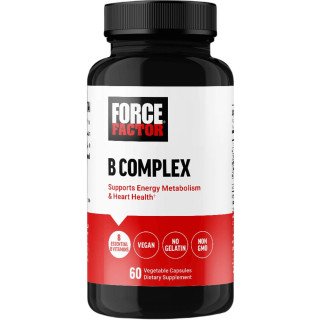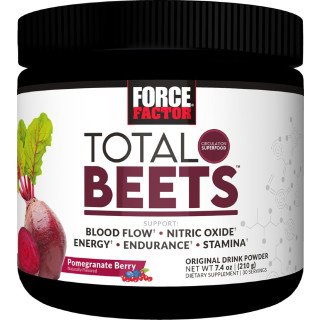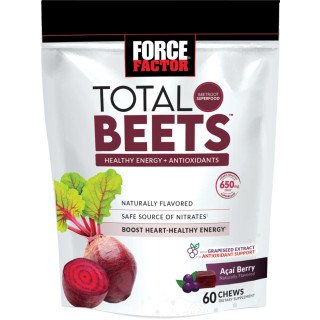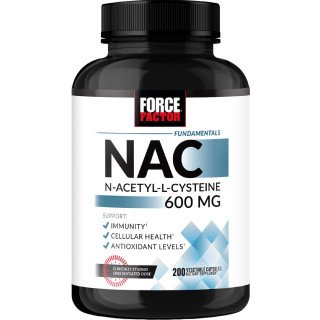TeaCrine® and caffeine are both compounds that are believed to have energizing and stimulating effects on the body. However, differences...

HEART HEALTH
HEART HEALTH
eart health is the heart’s ability to function properly, pump blood, and deliver oxygen and nutrients to all organs and tissue.
Ingredients
Specialty
Ingredients
Specialty Ingredients
Goal OVERVIEW
Heart disease is the leading cause of death in the United States. According to the Centers for Disease Control and Prevention (CDC), heart disease is responsible for one in four deaths in the United States each year. Some people are more at risk for heart disease than others, due to factors such as family history, age, and race. By taking steps to improve heart health, you can reduce your risk of developing heart disease and other cardiovascular diseases.
What You Should Know
There are many things you can do to improve your heart health, such as:
Eating a healthy diet. This includes eating plenty of fruits, vegetables, and whole grains. Regular exercise. Aim for at least 30 minutes of moderate-intensity exercise most days of the week. Maintaining a healthy weight. Obesity is a major risk factor for heart disease. Not smoking. Smoking damages your heart and blood vessels. Managing stress. Stress can contribute to heart disease. Getting regular checkups. This is important for detecting and managing any underlying health conditions that could affect your heart health.
FOOD FOR THOUGHT
There are many factors that contribute to heart health, including: Age, sex, race, ethnicity, medical conditions, physical activity, diet, smoking, obesity, stress, family history, sleep, sun exposure, alcohol consumption, and drug use can all affect heart health. Making healthy lifestyle choices, such as eating a healthy diet, exercising regularly, and not smoking, can help to reduce the risk of developing heart disease. By making healthy lifestyle choices, you can reduce your risk of developing heart disease and improve your overall health.

SHAGANDHA® BY SABINSA
Shagandha® is a standardized powdered extract from the roots of Withania somnifera, commonly known as ashwagandha. Shagandha® offers various health benefits, including reducing stress, anxiety, and insomnia while improving cognitive function, reducing inflammation, and boosting the immune system. It is available in capsules, powders, and teas and is often used in herbal mixtures. Considered to be a breakthrough Adaptogenic.
Sponsored Content
FAQ
Heart disease, also known as cardiovascular disease, encompasses various conditions affecting the heart and blood vessels. Several risk factors can increase the likelihood of developing heart disease. Some risk factors are modifiable, meaning lifestyle changes can influence them, while others are non-modifiable. Understanding these risk factors is important to take proactive steps in preventing heart disease.
Here are some common risk factors:
Non-Modifiable Risk Factors:
- Age: The risk of heart disease increases with age. Men over 45 and women over 55 are at higher risk.
- Gender: Men are generally at higher risk of heart disease at a younger age, but after menopause, women’s risk approaches men’s.
- Family History: A family history of heart disease can increase your risk. If your parents or siblings have had heart disease, you might be at a higher risk.
- Ethnicity: Certain ethnic groups, such as African Americans, Hispanics, and South Asians, have a higher risk of heart disease.
Modifiable Risk Factors:
- Smoking: Smoking is a significant risk factor for heart disease. It damages blood vessels, reduces oxygen supply, and increases blood pressure.
- High Blood Pressure: Also known as hypertension, high blood pressure strains the heart and blood vessels, increasing the risk of heart disease and stroke.
- High Cholesterol: High levels of LDL (“bad”) cholesterol and low levels of HDL (“good”) cholesterol increase the risk of plaque buildup in arteries.
- Diabetes: Diabetes can damage blood vessels and increase the risk of heart disease.
- Obesity and Overweight: Excess weight, especially around the abdomen, increases the risk of heart disease.
- Physical Inactivity: Lack of regular exercise contributes to weight gain, high blood pressure, and other risk factors for heart disease.
- Unhealthy Diet: Diets high in saturated and trans fats, cholesterol, salt, and added sugars can contribute to heart disease.
- Stress: Chronic stress can contribute to heart disease through increased blood pressure and unhealthy coping behaviors.
- Excessive Alcohol Consumption: Heavy drinking can lead to high blood pressure, heart failure, and other heart-related issues.
- Sleep Apnea: This sleep disorder is linked to an increased risk of high blood pressure, heart attack, and stroke.
- Poor Diet: Diets low in fruits, vegetables, and whole grains and high in processed foods can contribute to the risk of heart disease.
- Lack of Regular Physical Activity: Sedentary lifestyles increase the risk of heart disease.
- Substance Abuse: Illicit drug use, especially stimulants like cocaine, can lead to heart damage and increased heart disease risk.
It’s important to note that many of these risk factors are interconnected. Addressing one risk factor often positively impacts others. Lifestyle changes, such as quitting smoking, adopting a heart-healthy diet, staying physically active, managing stress, and maintaining a healthy weight, can significantly reduce the risk of heart disease. Regular check-ups with a healthcare professional can help assess your risk and provide guidance on managing and reducing your risk factors.
Preventing heart disease is essential for long-term health and involves a comprehensive approach to lifestyle management. Adopting a heart-healthy diet rich in whole foods and limiting unhealthy fats and sugars lays the foundation for cardiovascular wellness.
Combining regular exercise with weight management supports heart function and overall well-being. Key factors include quitting smoking, managing stress, and monitoring crucial health indicators like blood pressure, cholesterol, and blood sugar levels. Regular check-ups with healthcare professionals and staying informed about heart health can guide you in making positive, informed decisions. These combined efforts contribute to a robust heart and a life filled with vitality and health.
While a heart-healthy diet and lifestyle are the foundation for cardiovascular health, some supplements may provide additional support. However, it’s important to note that supplements should never replace a balanced diet and healthy lifestyle practices. Before adding any supplements to your routine, consult a healthcare professional to ensure they are safe and appropriate for your health profile.
Here are a few supplements that are commonly associated with heart health:
1. Omega-3 Fatty Acids:
- Omega-3 fatty acids, found in fish oil supplements, have been shown to have cardiovascular benefits. They can help lower triglyceride levels, reduce inflammation, and support overall heart health.
2. Coenzyme Q10 (CoQ10):
- CoQ10 is an antioxidant that plays a role in energy production within cells. Some research suggests it might help improve blood vessel function and lower blood pressure.
3. Garlic:
- Garlic supplements are believed to have potential benefits for heart health, including reducing blood pressure and cholesterol levels.
4. Magnesium:
- Magnesium is important for heart health and helps regulate blood pressure. Some people might benefit from magnesium supplementation if their levels are low.
5. Fiber Supplements:
- Fiber helps lower cholesterol and promote digestive health. A fiber supplement might be considered if you’re not getting enough fiber from your diet.
6. Vitamin D:
- Some studies suggest that low vitamin D levels might be associated with an increased risk of heart disease. However, more research is needed in this area.
7. Folic Acid (Folate):
- Folate is a B vitamin that is important for cardiovascular health. It helps lower homocysteine levels, an amino acid linked to heart disease risk.
8. Green Tea Extract:
- Green tea contains antioxidants called catechins that have been associated with cardiovascular benefits. Green tea extract might help improve cholesterol levels and reduce blood pressure.
9. Berberine:
- Berberine is a compound found in certain plants and has been studied for its potential to improve cholesterol levels and support heart health.
10. Hawthorn:
- Hawthorn is an herbal supplement traditionally used to support cardiovascular health. It might help improve blood flow and lower blood pressure.
Remember that the quality and effectiveness of supplements can vary, and some supplements may interact with medications or have potential side effects. Choosing reputable brands, following recommended dosages, and prioritizing a well-rounded approach to heart health that includes a balanced diet, regular exercise, stress management, and other heart-healthy habits are important. Always consult with a healthcare professional before starting any new supplement regimen.
Heart disease is an umbrella term that encompasses a range of conditions that affect the heart and blood vessels. These conditions can vary in severity and may impact different aspects of heart function.
Once aware of all the risks and potential outcomes, consider adopting the lifestyle changes discussed and learning about the many specialty ingredients designed to provide safe and natural ways to help mitigate certain risks. Click here.
Here are some of the common types of heart disease:
1. Coronary Artery Disease (CAD):
- Coronary artery disease occurs when the coronary arteries, which supply oxygen-rich blood to the heart muscle, become narrowed or blocked due to plaque buildup (atherosclerosis). This can lead to chest pain (angina), heart attacks, and other complications.
2. Heart Attack (Myocardial Infarction):
- A heart attack occurs when blood flow to a part of the heart muscle is blocked, usually due to a blood clot forming on a coronary artery plaque. This can cause damage to the heart muscle.
3. Heart Failure:
- Heart failure occurs when the heart cannot pump blood effectively to meet the body’s needs. It can result from CAD, high blood pressure, or heart valve disorders.
4. Arrhythmias:
- Arrhythmias are irregular heart rhythms. They can be too fast (tachycardia), slow (bradycardia), or irregular. Some arrhythmias are benign, while others can be serious and require treatment.
5. Atrial Fibrillation:
- Atrial fibrillation (AFib) is a common arrhythmia in which the heart’s upper chambers (atria) beat irregularly and often rapidly. It increases the risk of blood clots and stroke.
6. Heart Valve Disease:
- Heart valve disease involves damage or defects in one or more heart valves. This can disrupt blood flow through the heart, leading to fatigue, shortness of breath, and chest pain.
7. Cardiomyopathy:
- Cardiomyopathy is a condition in which the heart muscle becomes weakened or enlarged. It can be genetic or result from other conditions such as high blood pressure, infections, or alcohol abuse.
8. Congenital Heart Disease:
- Congenital heart disease is a term for heart defects present at birth. These defects can affect the heart’s structure and function.
9. Pericarditis:
- Pericarditis is the inflammation of the pericardium, the thin sac surrounding the heart. It can cause chest pain and other symptoms.
10. Peripheral Artery Disease (PAD):
- PAD occurs when there’s a buildup of plaque in the arteries that supply blood to the legs and arms. It can cause pain, numbness, and reduced circulation in these areas.
11. Rheumatic Heart Disease:
- Rheumatic heart disease is a complication of rheumatic fever, an inflammatory condition that can damage heart valves and other parts of the heart.
12. Hypertensive Heart Disease:
- Hypertensive heart disease is caused by long-term high blood pressure, which can lead to thickening and enlargement of the heart muscle and other heart-related complications.
13. Vascular Disease:
- Vascular disease is conditions that affect the blood vessels outside the heart, including the arteries and veins. It can contribute to heart disease and other health issues.
These are just a few examples of the types of heart disease. Many factors, including genetics, lifestyle, and medical history, can influence the development of heart disease. Preventive measures such as adopting a heart-healthy lifestyle, managing risk factors, and seeking regular medical check-ups can help reduce the risk of heart disease and its complications.
A heart-healthy diet promotes cardiovascular health by reducing the risk of heart disease and related conditions. It emphasizes nutrient-rich foods supporting heart function, managing blood pressure, lowering cholesterol levels, and maintaining a healthy weight.
Here are the key principles of a heart-healthy diet:
1. Plant-Based Foods:
- Base your diet on fruits, vegetables, whole grains, legumes, nuts, and seeds. These foods are rich in vitamins, minerals, fiber, and antioxidants that support heart health.
2. Healthy Fats:
- Choose healthy fats, such as unsaturated fats in olive oil, avocados, nuts, and seeds. These fats can help lower bad cholesterol (LDL) levels.
3. Fatty Fish:
- Include fatty fish like salmon, mackerel, sardines, and trout, which are rich in omega-3 fatty acids that have cardiovascular benefits.
4. Lean Protein:
- Opt for lean protein sources, such as skinless poultry, fish, beans, lentils, and tofu. Limit consumption of red and processed meats.
5. Whole Grains:
- Choose brown rice, quinoa, whole wheat, and oats over refined grains. Whole grains provide fiber and nutrients that support heart health.
6. Fiber-Rich Foods:
- Consume foods high in soluble fiber, such as oats, beans, lentils, fruits, and vegetables. Soluble fiber can help lower cholesterol levels.
7. Limit Added Sugars:
- Minimize consumption of sugary beverages, sweets, and processed foods that contain added sugars. High sugar intake can contribute to obesity and heart disease risk.
8. Reduce Sodium Intake:
- Limit sodium intake by reducing salt in cooking and avoiding processed and packaged foods high in sodium.
9. Moderate Alcohol Consumption:
- If you drink alcohol, do so in moderation. For men, this generally means up to two drinks per day; for women, up to one drink per day.
10. Stay Hydrated:
- Drink plenty of water throughout the day to support overall health and hydration.
11. Portion Control:
- Pay attention to portion sizes to avoid overeating and support weight management.
12. Limit Saturated and Trans Fats:
- Reduce intake of saturated fats found in fatty cuts of meat, full-fat dairy, and processed foods. Avoid trans fats often found in fried and packaged foods.
13. Minimize Processed Foods:
- Choose whole, minimally processed foods over highly processed and fast foods.
14. Meal Planning:
- Plan your meals and snacks to include a variety of nutrient-dense foods.
15. Cook at Home:
- Prepare meals at home using fresh ingredients, allowing you to control your meals’ quality and nutritional content.
16. Mindful Eating:
- Practice mindful eating by paying attention to hunger and fullness cues, eating slowly, and savoring your meals.
Remember that dietary needs vary based on age, activity level, and health status. It’s always a good idea to consult a registered dietitian or healthcare professional to tailor a heart-healthy eating plan that meets your needs and goals. Combining a heart-healthy diet with regular physical activity, stress management, and other healthy lifestyle practices is essential for comprehensive cardiovascular health.
Related Videos
Articles
PEAK-ATP is often overlooked and mistaken for creatine, leading to the misconception that it is simply a more expensive version...
The optimal Bacopin® dosage is a popular topic among individuals interested in its cognitive benefits. Discovering the optimal dosage and...
























